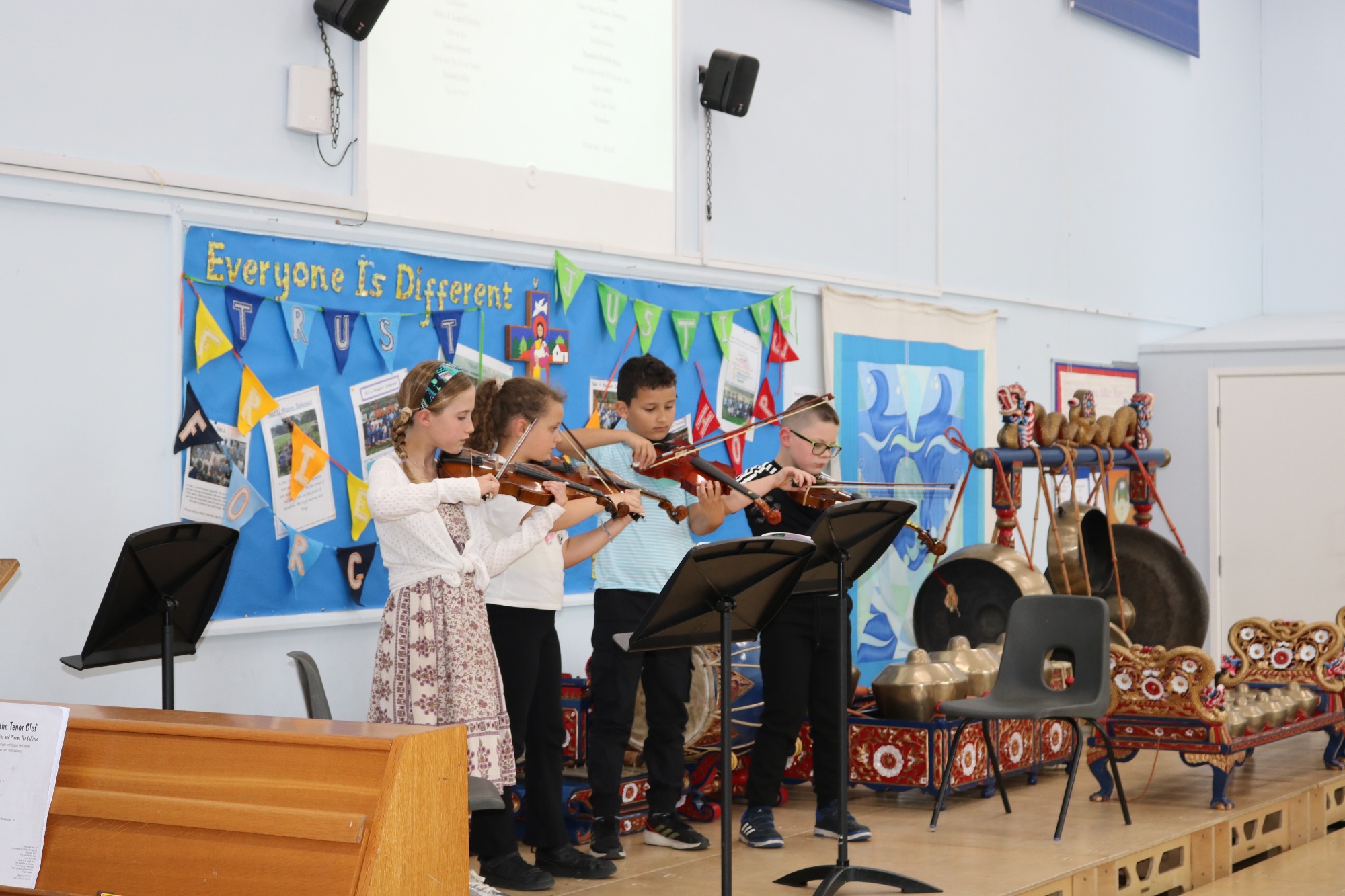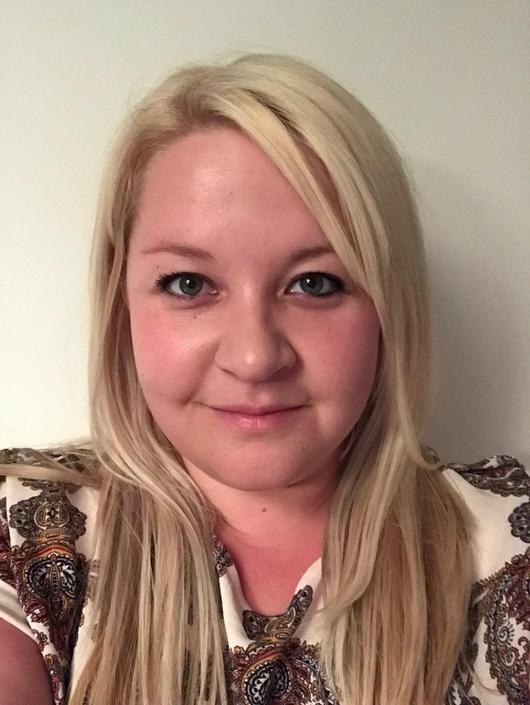Music

Meet the Music Lead
 Hello, I’m Mrs Loveday. I have been leading music since the beginning of this year and enjoy bringing singing and performance into school life.
Hello, I’m Mrs Loveday. I have been leading music since the beginning of this year and enjoy bringing singing and performance into school life.
I have a passion for music, particularly singing, and I enjoy leading our weekly singing assembly, where everyone comes together to sing. I also love seeing children share their musical talents with the school community.
I look forward to continuing to develop music across the school and providing opportunities for children to engage with and enjoy music in different ways.
Our Vision for Music
Our music curriculum is inspired by our Christian Vision and the principles that everyone is different, everyone is special, and everyone is our neighbour. Pupils explore the diversity of musical traditions and styles from across the world, deepening their appreciation of the universal language of music. By nurturing every child’s unique creativity and expression, we help them develop confidence and a lifelong love of music. Music becomes a powerful tool for connection, fostering collaboration, empathy, and hope, as pupils use their talents to inspire and care for others.
Music Teaching and Learning
We provide a rich and engaging music curriculum that allows children to develop their musical skills, creativity, and appreciation of different musical styles. We follow the Charanga scheme, which ensures a progressive and structured approach to learning music across the school.
Through Charanga, children develop key musical skills, including:
- Listening and appraising – Exploring a wide range of musical genres and styles.
- Performing – Singing, playing instruments, and participating in ensemble work.
- Composing and improvising – Creating their own music using voices and instruments.
- Musical notation – Understanding and reading written music.
In addition to Charanga, we offer specialist instrumental tuition:
- Year 3 – Whole-class violin instruction.
- Year 4 – Introduction to Gamelan, exploring traditional Indonesian ensemble music.
- Years 5 and 6 – Learning to play brass instruments, further developing ensemble and performance skills.
Our music curriculum ensures that all children have the opportunity to develop their musicianship, confidence, and love of music, whether through singing, playing instruments, or composing their own pieces.
Assessment in Music
We assess children’s progress in music through a combination of formative and summative assessment every long term.
- Formative Assessment – Throughout each lesson, teachers observe and assess children’s musical development through participation in activities such as singing, playing instruments, composing, and listening tasks. This ongoing assessment allows us to adapt teaching to meet the needs of all learners.
- Summative Assessment – At the end of each long term, we assess children’s progress more formally across key musical skills, including:
- Listening and appraising – Understanding and responding to different musical styles.
- Performing – Singing or playing instruments with accuracy and confidence.
- Composing and improvising – Creating and structuring musical ideas.
- Understanding musical notation – Reading and interpreting music symbols.
Through this structured approach to assessment, we ensure that children make continuous progress in their musical learning, developing their confidence and skills as musicians.
